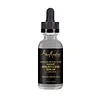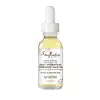What's inside
What's inside
 Key Ingredients
Key Ingredients

 Benefits
Benefits

 Concerns
Concerns

 Ingredients Side-by-side
Ingredients Side-by-side

Water
Skin ConditioningGlycerin
HumectantPropanediol
SolventGlycolic Acid
BufferingSalicylic Acid
MaskingButyrospermum Parkii Butter
Skin ConditioningSodium Hyaluronate
HumectantAloe Barbadensis Leaf Juice
Skin ConditioningCharcoal Powder
AbrasiveSodium PCA
HumectantSodium Ascorbyl Phosphate
AntioxidantAllantoin
Skin ConditioningTheobroma Cacao Husk
AbrasiveElaeis Guineensis Kernel Oil
EmollientCocos Nucifera Oil
MaskingPanthenol
Skin ConditioningCaprylic/Capric Triglyceride
MaskingHydrogenated Olive Oil Unsaponifiables
EmollientCucumis Sativus Fruit Extract
EmollientTocopheryl Acetate
AntioxidantProline
Skin ConditioningHydroxyproline
Skin ConditioningHydrogenated Ethylhexyl Olivate
EmollientHydroxyethylcellulose
Emulsion StabilisingXanthan Gum
EmulsifyingGluconolactone
Skin ConditioningCalcium Gluconate
HumectantPolysorbate 60
EmulsifyingDisodium Phosphate
BufferingEthylhexylglycerin
Skin ConditioningSodium Benzoate
MaskingCaprylyl Glycol
EmollientWater, Glycerin, Propanediol, Glycolic Acid, Salicylic Acid, Butyrospermum Parkii Butter, Sodium Hyaluronate, Aloe Barbadensis Leaf Juice, Charcoal Powder, Sodium PCA, Sodium Ascorbyl Phosphate, Allantoin, Theobroma Cacao Husk, Elaeis Guineensis Kernel Oil, Cocos Nucifera Oil, Panthenol, Caprylic/Capric Triglyceride, Hydrogenated Olive Oil Unsaponifiables, Cucumis Sativus Fruit Extract, Tocopheryl Acetate, Proline, Hydroxyproline, Hydrogenated Ethylhexyl Olivate, Hydroxyethylcellulose, Xanthan Gum, Gluconolactone, Calcium Gluconate, Polysorbate 60, Disodium Phosphate, Ethylhexylglycerin, Sodium Benzoate, Caprylyl Glycol
Vitis Vinifera Seed Oil
EmollientCaprylic/Capric Triglyceride
MaskingHeptyl Undecylenate
EmollientArgania Spinosa Kernel Oil
EmollientRicinus Communis Seed Oil
MaskingVitis Vinifera Seed Oil, Caprylic/Capric Triglyceride, Heptyl Undecylenate, Argania Spinosa Kernel Oil, Ricinus Communis Seed Oil, Butyrospermum Parkii Butter, Cocos Nucifera Fruit Extract, Cocos Nucifera Oil, Tocopherol, Acacia Senegal Gum Extract, Oenothera Biennis Oil, Ethyl Palmitate, Isononyl Isononanoate
Ingredients Explained
These ingredients are found in both products.
Ingredients higher up in an ingredient list are typically present in a larger amount.
This ingredient is also known as shea butter. It is an effective skin hydrator and emollient.
Emollients help soothe and soften your skin. It does this by creating a protective film on your skin. This barrier helps trap moisture and keeps your skin hydrated. Emollients may be effective at treating dry or itchy skin.
Shea butter is rich in antioxidants. Antioxidants help fight free-radicals, or molecules that may harm the body. It is also full of fatty acids including stearic acid and linoleic acid. These acids help replenish the skin and keep skin moisturized.
While Shea Butter has an SPF rating of about 3-4, it is not a sunscreen replacement.
Shea butter may not be fungal acne safe. We recommend speaking with a professional if you have any concerns.
Learn more about Butyrospermum Parkii ButterThis ingredient is an emollient, solvent, and texture enhancer. It is considered a skin-softener by helping the skin prevent moisture loss.
It helps thicken a product's formula and makes it easier to spread by dissolving clumping compounds.
Caprylic Triglyceride is made by combining glycerin with coconut oil, forming a clear liquid.
While there is an assumption Caprylic Triglyceride can clog pores due to it being derived from coconut oil, there is no research supporting this.
Learn more about Caprylic/Capric TriglycerideCocos Nucifera Oil is obtained from the kernels of the coconut fruit. In other words, this is coconut oil.
Coconut Oil is rich in fatty acids with lauric acid making up the majority of these. It also contains linoleic acid. Due to this high fatty acid content, coconut oil helps trap moisture and soften skin.
Despite being antibacterial, coconut oil may not be great for acne-prone skin. It is comedogenic and may clog pores. This ingredient may not be safe for malassezia or fungal acne.
Note: Coconut Oil should not replace your sunscreen for UV protection. Studies show it only blocks about 20% of UV.
This oil is non-volatile and has a light scent.
The term 'fragrance' is not regulated in many countries. In many cases, it is up to the brand to define this term. For instance, many brands choose to label themselves as "fragrance-free" because they are not using synthetic fragrances. However, their products may still contain ingredients such as essential oils that are considered a fragrance.
Learn more about Cocos Nucifera Oil